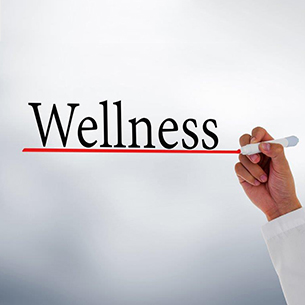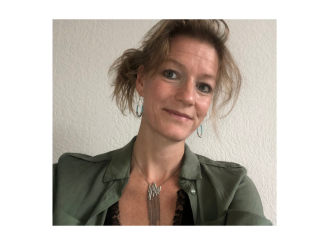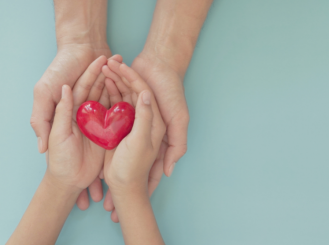By Hilde M. Buiting, PhD
Here in the Netherlands, we have already passed four waves of COVID-19 since March 2021. As of August 2021, a large majority of the Dutch population is vaccinated and restrictions have become less rigorous. Schools have reopened, restaurants and terraces can be used by the general public, hopefully theater and music festivals can soon be visited again to a great extent also. Although the present situation seems to resemble the old, trusted, and “normal” situation, everyone remains aware of the COVID crisis. Those of us in oncology, in particular, are still concerned about the effect on patients with cancer and await more data. Moreover, the severe restrictions during the past months have resulted in delays in the provision of cancer treatment and new diagnoses. After more than a year, there is a growing acceptance of the idea that the virus is something that we must both fight and, to some extent, learn to live with, as we live with seasonal flu.1 It requires a different way of thinking.
Wave Over Wave
Switching our mindset and transforming health care to accommodate our new real-life practices can be rather difficult, as you yourself have probably already experienced. The pandemic, with its consecutive waves of lockdowns and reopenings, can be viewed as a great experiment in human adaptability and resilience. It has shown us that both patients as well as health care professionals are very much capable of change during moments of crisis.
For instance, as a patient said of social distancing, “It’s crazy; it’s abnormal. Cuddling is normal. Touching each other is normal.” But he nevertheless accepted the restrictions on human contact. It goes without saying that such a situation cannot endure forever, but it at the same time shows how resilient people can be.
We also developed new, positive routines during periods of restrictions that should ideally be implemented during less restricted periods also—both in our personal lives and in the organization of health care.2 During the past year, during periods of loosened restrictions and lower infection rates, the number of COVID cases however soon increased, which shows how difficult it is to implement social restrictions for long periods—they shield us from infection but decrease well-being in other ways.3 If this is the case, what lessons and new routines from the pandemic can be made part of our daily lives and practices, and stay in place even as society begins to act as before again? E.g., can this crisis be regarded as an opportunity to facilitate changes being enforced during restricted periods, and therefore more easily implemented when the old, trusted, and normal situation would be there again?
Finding Valuable Lessons in Enforced Changes
Establishing good personal and professional relationships is essential for our well-being and is a prerequisite of providing good care to our patients.4 Whereas social distancing is an enforced change due to the present COVID crisis, some of the behavioral changes that followed social distancing can be of added value during and beyond the pandemic. One simple example is the benefit of combining in-person and digital meetings. For one thing, virtual meetings help us and our patients save precious time, which can then be used, for instance, in the investment of private relationships and life outside of cancer care. Patients sometimes reported appreciating digital meetings because their physical condition made travel to the health care facility a tiring experience. From a health care organization perspective, Laura Cooley convincingly showed how the COVID-19 pandemic accelerated the use of digital team meetings in a health care context.5 Although there were some drawbacks, Dr. Cooley reported that virtual meetings could be time-efficient as well as personally engaging if participants pay sufficient attention to being present. This especially holds for patients living longer with incurable cancer.6
An Evolving Understanding of Well-Being
Just as we carefully monitor our patients’ well-being during virtual visits, we must also consider the impact of COVID-19 on our own well-being as oncology professionals. We know that physical and mental wellness are entwined—that our physical health affects our mental health, and vice versa. In these times when our physical presence is so restricted, more effort is required to maintain our mental wellness and achieve a state of overall well-being. We talk about “being there” for one another to lend comfort and support; in the time of coronavirus, “being there” can be interpreted as being apart and being together. Digital tools make it possible to be together while being apart, which contributes to a much broader interpretation of “being there.”
This uptake of digital togetherness has value beyond the pandemic; nevertheless, there is no substitute for the power of human contact. All of the partnered patients I spoke with have reported that variety of negative emotions that often encompass a cancer diagnosis combined with the limited opportunities for contact. They have disrupted the existing balance that they and their partners usually felt as a couple. A boost of happiness was lacking.
Positive relationships are normally sources of intimacy, comfort, and support; they offer relief from stress and lower rates of anxiety and depression. These are exactly what we need during the upheaval of the pandemic, and exactly what we were or are missing because of COVID-related restrictions. I have observed that the positive effects of intimate relationships were more often absent for couples during the COVID crisis. This also held for sexual health, impacting both intimacy as well as the satisfaction of the couple being together. One patient with incurable cancer said, “You are sad. Your partner sees you are sad, then they get sad. At the same time, you feel that they are sad and… then you don’t get out of that circle.”
This is why fostering strong relationships is an important starting point to be able to increase the well-being of patients with cancer and that of their caregivers and loved ones: Our feelings influence those around us. Sadness and pessimism can create a vicious cycle among partners and families. Fortunately, the opposite is also true: Being optimistic is attractive and will make other people optimistic also.
As we focus on those around us and establish close relationships, we are reminded that our time is precious. Some of us may even consider those they have lost to COVID-19. As another patient with incurable cancer told me, “I always say that leaving things for later is already too late. Let’s say you have an idea for today—it’s better if you do that today rather than tomorrow, because you don’t know what could happen tomorrow.” This has always been true, but it has never been more clear than it is today.
COVID-19 has taught us how we can both live in the present and focus on the future; how we can make the most out of our time, regardless of our physical condition. It has taught us how to use new digital tools to stay in contact and to appreciate the things which are important to us, and that the human touch is still essential. It also showed that we can change our mindset to facilitate and improve our relationships, which eventually will positively affect patients’ (and their close relatives’) well-being also. Although wave upon wave, this crisis may keep some of us apart, we at the same time have the power to create our own waves of connection.
Dr. Buiting is a researcher across the interface of palliative care and oncology since 2005. As a medical scholar, apart from learning medical skills, using the knowledge gained from observations in medical practice into research is one of the drives that keeps motivating her. Disclosure: Dr. Buiting has no conflicts of interest to disclose.
References
- Maragakis L. COVID-19 vs. the Flu. Johns Hopkins Medicine. Updated Jul 29, 2021.
- van Alphen E. Living (longer) with incurable cancer. Master’s thesis; UvA, Amsterdam, the Netherlands, 2020.
- Applebaum AJ, Stein EM, Lord-Bessen J, et al. Optimism, social support, and mental health outcomes in patients with advanced cancer. Psychooncology. 2014;23:299-306.
- Buiting HM. The impact of relationships on quality of life during corona times. European Association for Palliative Care Blog. Aug 11, 2021.
- Cooley L. Fostering Human Connection in the Covid-19 Virtual Health Care Realm. NEJM Catalyst. May 20, 2020.
- Buiting HM, van Ark MAC, Dethmers O, et al. Complex challenges for patients with protracted incurable cancer: an ethnographic study in a comprehensive cancer centre in the Netherlands. BMJ Open. 2019;9:e024450.




Recent posts